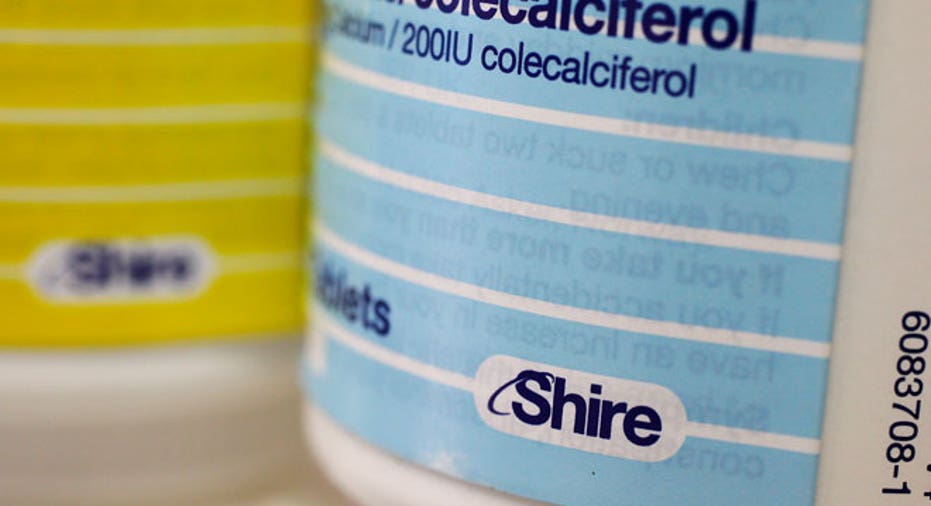Shire Proposes $30B All-Share Tie-Up with Baxalta

Dublin-based Shire PLC said Tuesday that it has made an unsolicited offer to acquire rare-disease treatment maker Baxalta Inc. for roughly $30.6 billion in stock, in the latest example of a foreign company using its tax-friendly status to go after a U.S. company. Shire said Baxalta has resisted its entreaties to seriously negotiate. A Baxalta spokesman wasn't immediately available to comment. The offer comes just more than a month after Baxalta, which sells treatments for rare bleeding disorders and immune deficiencies, completed its spinoff from Baxter International Inc. Baxter remains Baxalta's biggest shareholder, with a stake of about 24%, according to FactSet. Shire has been striking deals as part of a reorganization into a biotech with a focus on treatments for rare diseases and other narrow conditions. The moves come after Shire last year first resisted a takeover from U.S.-based AbbVie Inc., which eventually signed a $54 billion takeover deal to buy it. Then AbbVie reversed course and dropped the takeover plans, citing new tax rules from the U.S. that "eliminated certain of the financial benefits of the transaction." Under Shire's proposed deal for Baxter, Baxalta holders would receive 0.1687 Shire American depositary shares for each Baxalta share held, implying a value of $45.23 per Baxalta share and a premium of 36% based on Monday's closing prices. Baxalta shares rose 13% to $37.34 in morning trading, while Shire's ADRs fell 4.7% to $255.36. Baxter shares added 2.3% to $40.42. Shire said the deal would generate sales growth in the double-digits and would boost profits starting in the second year after the transaction closes. Shire also noted the Baxalta offer's "compelling tax profile" and projected a potential tax rate of 16%-17% by 2017. In a news release Tuesday, Shire Chief Executive Flemming Ornskov said that "together, the companies would be projected to deliver $20 billion in product sales by 2020, with the financial and operational firepower to fuel further innovation and growth in rare diseases." According to Shire, Baxalta had declined to engage in substantial talks regarding the proposal, which Shire said it first proposed in early July. In a letter to Baxalta Chief Executive Ludwig N. Hanston on Tuesday, Shire said "you have left us with no choice but to make our proposal known to your shareholders." Shire said the proposed deal would leave Baxalta shareholders with roughly 37% in the combined company. After the deal closes, Shire says it would begin a program to repurchase within two years as much as 13% of the new company's shares outstanding. In 2014, Baxalta had net sales of $6 billion and net income from continuing operations of $1.2 billion. Shire had sales of $5.83 billion in 2014 and operating income of $2.59 billion, excluding certain items. Acquisitions have been seen as a way for Shire to fulfill a pledge to nearly double sales to $10 billion in 2020. Deals also may be needed, some analysts say, for Shire to bulk up enough to avoid further takeover interest. Shire's Dr. Ornskov has targeted rare-disease treatments for long-term growth, because there was a strong need for the treatments; the U.S. Food and Drug Administration was speeding approval of more of the drugs; and the best-performing stocks in recent years were biotechs. Shire, like other foreign companies, are trying to use their lower tax rates to turbocharge corporate takeovers. Applying those rates, often in the midteens, to profits of companies in the U.S., with a federal corporate rate of 35%, can yield extra savings on top of those traditionally wrung from mergers. Moreover, unlike the U.S., Ireland and most other countries only tax profits earned in-country, giving companies the freedom and incentive to shift income to still-lower-tax jurisdictions. Shire is incorporated in the island of Jersey and officially based in Ireland. The lingering deals show that, despite efforts by U.S. lawmakers last year to protect the U.S. corporate tax base, revenue keeps trickling out.



















